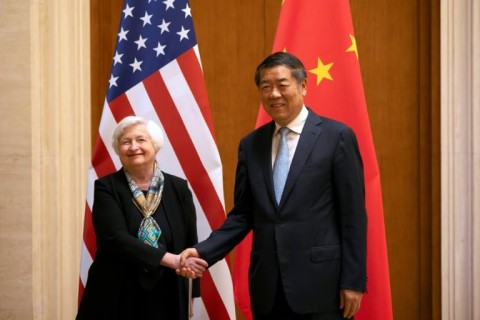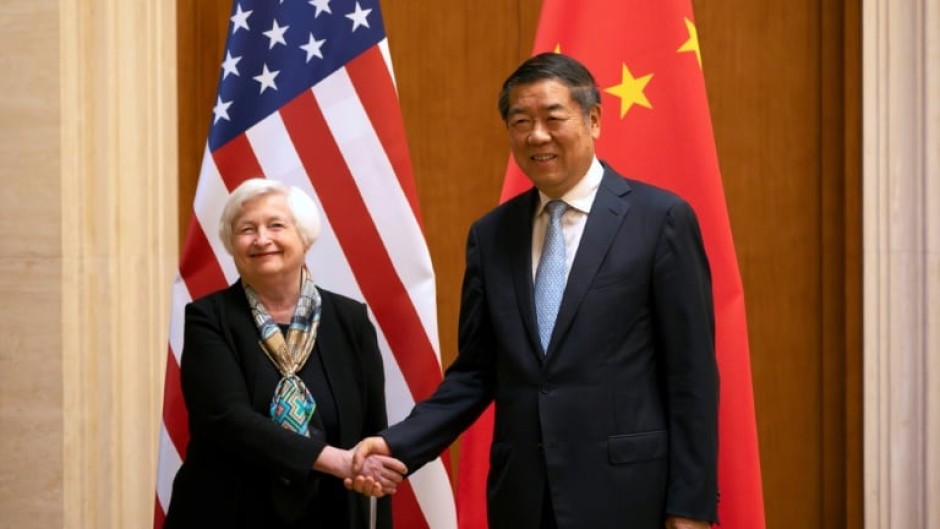
BEIJING - US Treasury Secretary Janet Yellen said that her talks with top Chinese officials have put ties on "surer footing", as she wrapped up a trip aimed at stabilising fraught relations between the world's two biggest economies.
During her four-day trip -- which came on the heels of US Secretary of State Antony Blinken's visit -- Yellen stressed the need for greater exchanges and collaboration, even as deep divides persist between the countries.
"We believe that the world is big enough for both of our countries to thrive," she told journalists at the US embassy in Beijing on Sunday.
"Both nations have an obligation to responsibly manage this relationship: to find a way to live together and share in global prosperity," she added.
Her trip furthers a push by President Joe Biden's administration to steady ties with China while still asserting US policies.
While the trip did not produce specific breakthroughs, China's official Xinhua news agency said late Saturday that Yellen's meeting with Vice Premier He Lifeng yielded an agreement to "strengthen communication and cooperation on addressing global challenges".
Both sides also agreed to continue exchanges, the readout added.
And Yellen said Sunday that while there are "significant disagreements" between the two countries, she and Chinese officials had held talks that were "direct, substantive, and productive".
"My bilateral meetings –- which totalled about 10 hours over two days –- served as a step forward in our effort to put the US-China relationship on surer footing," she said.
Topping the laundry list of disagreements are Washington's trade curbs, which it says are intended to reduce the second-largest economy’s access to advanced technology deemed crucial to national security.
On Sunday, Yellen said she had stressed that Washington’s measures "are not used by us to gain economic advantage".
"These actions are motivated by straightforward national security considerations," she said.
She also said she had raised her "serious concerns" over what she called "unfair trade practices" by Beijing.
She cited barriers to foreign firms entering the Chinese market as well as issues around the protection of intellectual property.
"I also expressed my worries about a recent uptick in coercive actions against American firms," she said, referring to a recent national security crackdown against US consulting firms in China.

